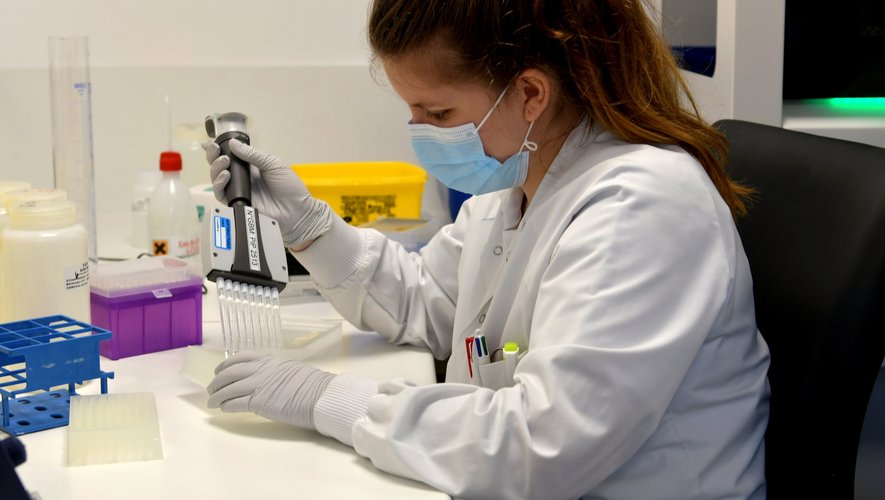While the World Health Organization (WHO) has lifted the state of health emergency against Covid-19, the virus is still circulating. In Toulouse, the virology teams follow its evolution.
With today 30 cases per 100,000 inhabitants at the national level and 40 cases per 100,000 inhabitants in Occitania (1), the Covid-19 is still circulating. But the health emergency is no longer relevant, as confirmed by the World Health Organization (WHO) on May 5. After three years of pandemic, scientists remain vigilant and continue their work on the SARS-CoV-2 virus which has claimed the lives of millions of people.
The arch-dominating Omicron variant
“We are still monitoring the virus, in particular through the weekly flash surveys commissioned by Public Health France from random samples of patients who tested positive for Covid-19 in city medicine or in hospital”, summarizes Professor Jacques Izopet, head of the virology department of the University Hospital Center (CHU) of Toulouse. In his laboratory, the genotype of the virus is studied. “Unsurprisingly, we are still in the presence of the Omicron variant. The current sub-variant is called XBB, it is a recombinant of two Omicron sub-lines. The virus is still circulating but its incidence has fallen well and with a rate of transmission less than 1 (R=0.9), we are no longer in the epidemic phase”. The Omicron variant has been the majority since January 2022.
Like his colleagues, the virologist is interested in the situation in China, which has numerous cases of infected patients after its zero Covid policy. “We have little information but, at the scale of the world population, the level of immunization is high enough not to find ourselves in the situation of the beginning of the epidemic. It is important to continue to study the virus SARS-CoV-2 to understand its mechanisms and assess the effectiveness of future treatments in the event of an upsurge”, continues the virologist.
Monitoring mutations in people with persistent infections
Today, in France, only the laboratories of the Hospices Civils de Lyon and the Institut Pasteur (Paris) are involved in sequencing for the monitoring of virus variants. However, sequencing is also carried out on an ad hoc basis at the virology laboratory of the Toulouse University Hospital.
“We perform sequencing on virus samples taken from immunocompromised people. These may have persistent infections that could lead to the transmission of a virus that has mutated. This is a classic process in virology: when a virus manages to escape treatment, mutations appear. Omicron has evolved a lot and monoclonal antibodies are no longer effective, we are waiting for new molecules. The challenge of current and future work is to better understand the level of immunity in order to know when to make vaccination reminders against Covid-19″, concludes Professor Jacques Izopet.

